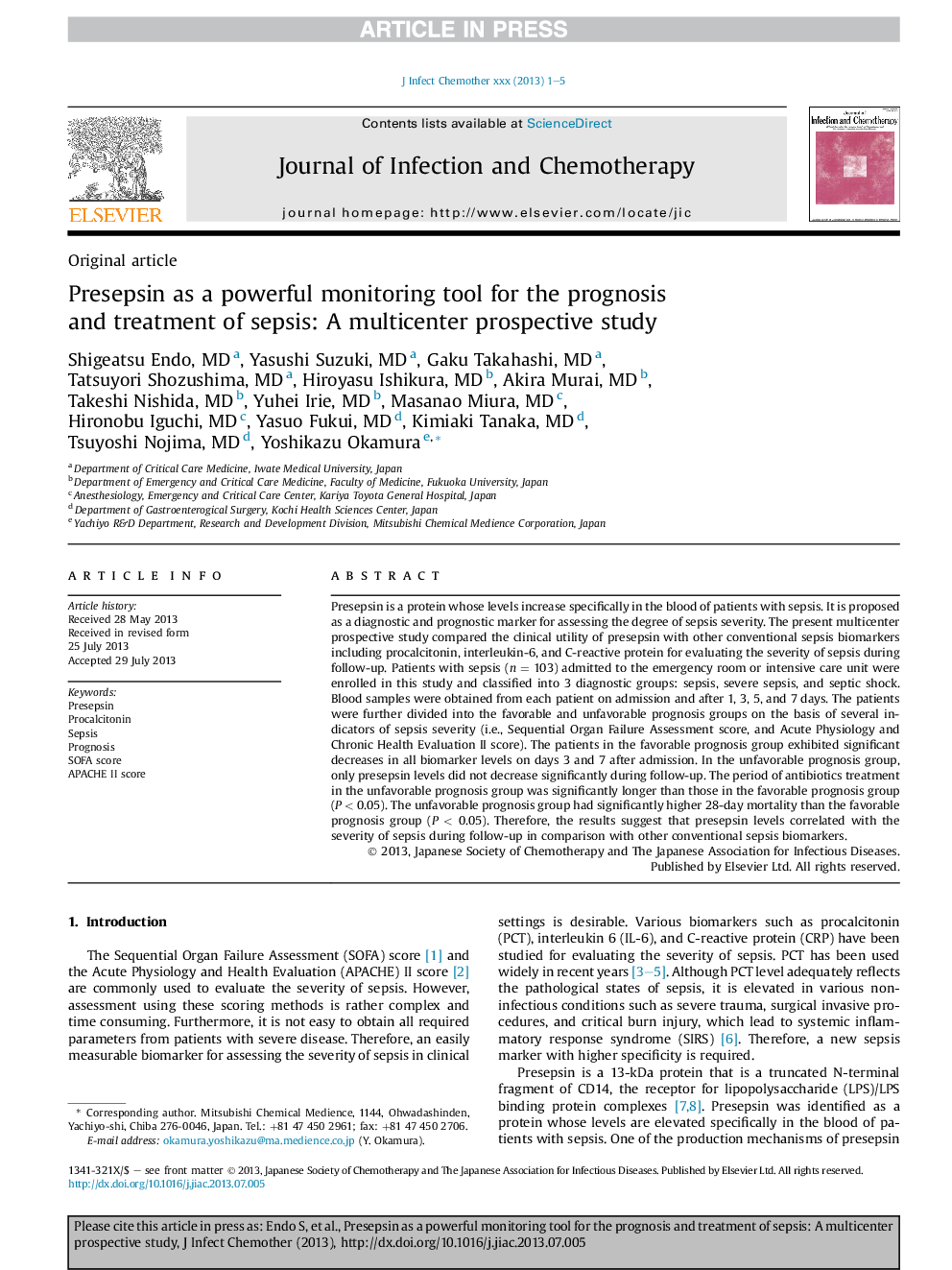| Article ID | Journal | Published Year | Pages | File Type |
|---|---|---|---|---|
| 6123875 | Journal of Infection and Chemotherapy | 2014 | 5 Pages |
Abstract
Presepsin is a protein whose levels increase specifically in the blood of patients with sepsis. It is proposed as a diagnostic and prognostic marker for assessing the degree of sepsis severity. The present multicenter prospective study compared the clinical utility of presepsin with other conventional sepsis biomarkers including procalcitonin, interleukin-6, and C-reactive protein for evaluating the severity of sepsis during follow-up. Patients with sepsis (n = 103) admitted to the emergency room or intensive care unit were enrolled in this study and classified into 3 diagnostic groups: sepsis, severe sepsis, and septic shock. Blood samples were obtained from each patient on admission and after 1, 3, 5, and 7 days. The patients were further divided into the favorable and unfavorable prognosis groups on the basis of several indicators of sepsis severity (i.e., Sequential Organ Failure Assessment score, and Acute Physiology and Chronic Health Evaluation II score). The patients in the favorable prognosis group exhibited significant decreases in all biomarker levels on days 3 and 7 after admission. In the unfavorable prognosis group, only presepsin levels did not decrease significantly during follow-up. The period of antibiotics treatment in the unfavorable prognosis group was significantly longer than those in the favorable prognosis group (P < 0.05). The unfavorable prognosis group had significantly higher 28-day mortality than the favorable prognosis group (P < 0.05). Therefore, the results suggest that presepsin levels correlated with the severity of sepsis during follow-up in comparison with other conventional sepsis biomarkers.
Related Topics
Life Sciences
Immunology and Microbiology
Applied Microbiology and Biotechnology
Authors
Shigeatsu MD, Yasushi MD, Gaku MD, Tatsuyori MD, Hiroyasu MD, Akira MD, Takeshi MD, Yuhei MD, Masanao MD, Hironobu MD, Yasuo MD, Kimiaki MD, Tsuyoshi MD, Yoshikazu Okamura,
